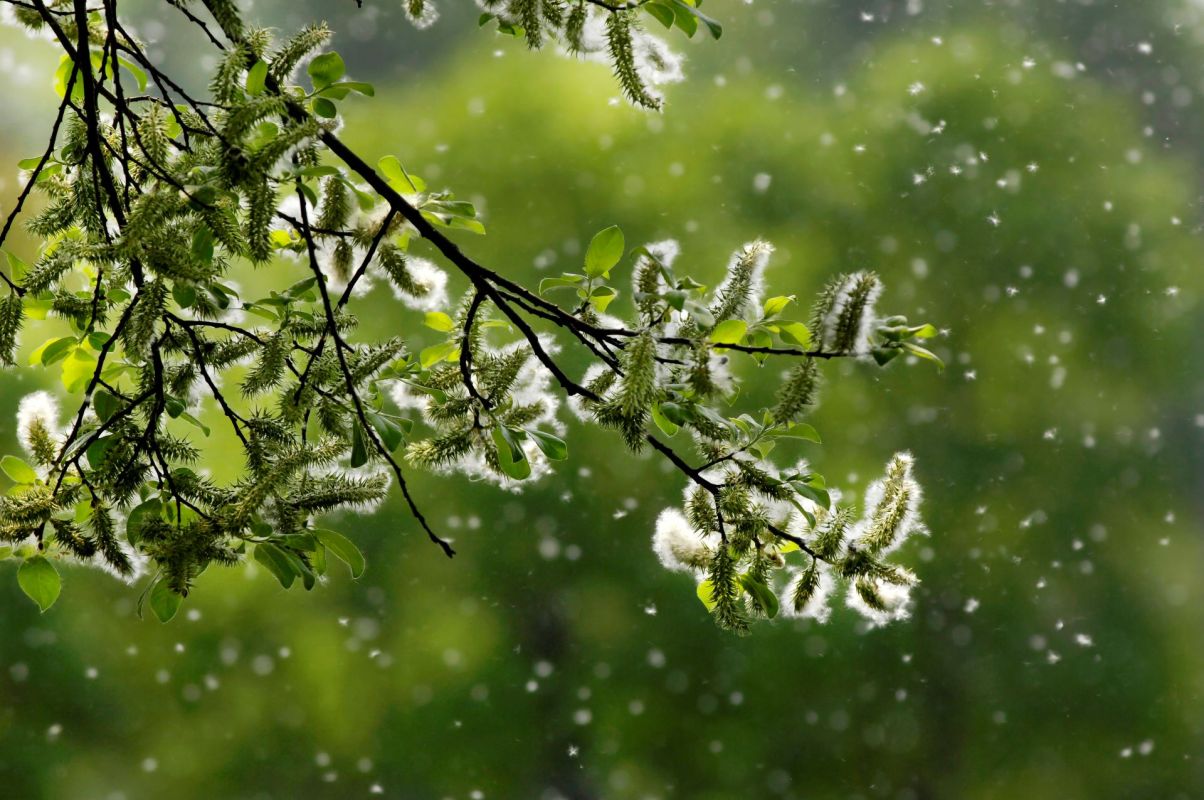We're barely into spring, but there's much more pollen in the air this year than we've seen before — and mold is along for the ride, too.
What's happening?
Because of the abnormally warm February in the southern and eastern United States, an explosion of plant pollen showed up sooner than usual throughout the country.
For example, Atlanta's pollen rose to an "extremely high" count on Mar. 6, the earliest the season's seen in 30 years. The count doubled the very next day. Washington, D.C. also saw "high" pollen counts on Feb. 8, marking the highest count recorded at such an early seasonal date.
Unfortunately, pollen isn't the only culprit here. Mold is more prevalent in the wetter, warmer weather that spring brings, and it can be quite the allergen for some people, exacerbating symptoms to the point of extreme discomfort.
Why does an early allergy season matter?
Allergy season is typically from about February until early summer. However, our warming climate is only increasing the season's severity.
The problem is that this trend isn't a one-off, isolated occurrence. Experts warn that as our planet warms, more pollen will develop, extending allergy season both at its start and end. With the milder winter seasons, we're seeing more and more plants pollinate earlier, so the season can likely last throughout much of the year.
"It just takes a string of very warm days in the 60s or 70s to entice our trees to start flowering and release their pollen," said Susan Kosisky, the U.S. Army Centralized Allergen Extract Lab's chief microbiologist, told the Washington Post. "This may happen as early as mid-January in [D.C.]."
Lauren Casey, Climate Central meteorologist, told CNN that our warming planet makes extreme precipitation like thunderstorms more probable. This weather is exactly what encourages mold to grow and spread through the air, making allergies even worse.
What can I do to help manage seasonal allergies?
If you're dealing with annoying seasonal allergies, no matter how long the season may be, you need to understand exactly what you're allergic to and where these things are found. If you're unsure, talk to your doctor.
Dr. Mitchell Grayson, chair of the Asthma and Allergy Foundation of America's Medical Scientific Council and chief of the division of allergy and immunology at Nationwide Children's Hospital, has a number of recommendations that could help.
During the day, try staying inside in the early morning and late afternoon since this is prime pollen-releasing time. It's smart to plan ahead with plenty of anti-allergy medication on hand, and if you use a steroid nasal spray, proactively start using it a couple of weeks pre-season.
Keeping your home clear of pollen particles is also crucial during the season. Closing windows in your home to minimize pollen particle exposure can help, along with changing heating and air conditioning air filters more often during allergy season. The latter can even reduce your energy consumption long-term, as a well-running HVAC system will use less energy to heat and cool your home.
Ultimately, Casey advises monitoring your seasonal allergies and keeping in mind that they'll stick around longer than in the past.
"[The] whole paradigm is changing with this increase in the growing season," Casey told CNN. "So having awareness that you may be suffering now and going forward in times of the year when you typically wouldn't, so be prepared for that in your daily life."
Join our free newsletter for cool news and cool tips that make it easy to help yourself while helping the planet.









